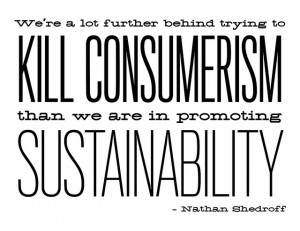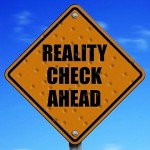
 After a few years practicing being a social commenter I have come to one certain conclusion. I should probably have my fucking head examined! Grief, that’s what you mostly get. Yet we all plug away, each of us for our own reasons from that unique perspective each of us can only call our own.
After a few years practicing being a social commenter I have come to one certain conclusion. I should probably have my fucking head examined! Grief, that’s what you mostly get. Yet we all plug away, each of us for our own reasons from that unique perspective each of us can only call our own.
Uniqueness? Individualism? Opinion? Free will? What are these things? How often do you hear unique? What is it that strikes you as something different?
How quickly does the intuitive, subconscious evaluation system begin the deconstruction you have been trained to do?
Here the unschooled and schooled differ little: only the orientation of perspective differs. “Ah yes”, I hear you murmur, “the classic split -Left and Right.” It is important to note that I’m not comparing being educated or not with being Left or Right – I’m saying our perspective is effected by the critical thinking skills we each have learned and employ effectively in our daily lives.
I was recently reading a book on moral philosophy and hardly made it to twenty pages when I encountered this paragraph:
“If you think that moral reasoning is something we do to figure out the truth, you’ll be constantly frustrated by how foolish, biased, and illogical people become when they disagree with you. But if you think about moral reasoning as a skill we humans evolved to further our social agendas – to justify our own actions and to defend the teams we belong to – then things will make a lot more sense.” Jonathan Haidt – “The Righteous Mind”.
If you don’t mind please read that quote again as it sets the tone for this particular lament…
It is true that human nature is shaped by groups competing with groups and by individuals competing within those groups. I have a number of friends I love deeply, the gentlest humans I have ever known – or probably will ever know. This idea of competition between groups and individuals within these groups is abhorrent to them. They are quirky, funny, odd, and often geniuses in disguise. Historians with photographic memories and the ability to synthesize that history, group the actors and weave a story that will have a bar room crowded a round a tiny table listening with rapt attention at the end of an evening, every once in a while exclaiming,”It doesn’t get better than this – I’m not kidding you!” Musicians who stop playing and walk away when you ask them why they are not internationally known – you learn to cherish when they play for you – wise enough to know you are listening to beauty: the drawing of chord change, a note, the warm worn tone that can only be grown alone.
I wrote that last paragraph thinking of my dear friend Dave reminding me often, when we share a glass of beer or two, that “It doesn’t get better than this – I’m not kidding you.” I know Dave, I know…
I acknowledge this competition as being the forever battle of the Right and the Left.
 One of Fukuyama’s main themes is how those with might took from those too timid to stand up for what was theirs – forever setting a social divide. A more than sobering thought is that the battle goes on – just a few steps removed from the blood and gore of times long thought gone by.
One of Fukuyama’s main themes is how those with might took from those too timid to stand up for what was theirs – forever setting a social divide. A more than sobering thought is that the battle goes on – just a few steps removed from the blood and gore of times long thought gone by.
“The genes are the master programmers, and they are programming for their lives. They are judged according to the success of their programs in copying with all the hazards that life throws at their survival machines, and the judge is the ruthless judge of the court of survival.” Richard Dawkins – “The Selfish Gene”
This experience we have can be profoundly satisfying and wondrously deep or perilously unsatisfying and critically shallow – heavily effected by the choices we make as part of this chugging and churning machine called life.
Groups, for many, are a way to take some of the tumbling out of life – they provide stability. As a nation must give up some sovereignty to join a trading bloc, so too do we when we join groups; we give up some of our sovereignty as individuals to belong to a group of like individuals. Others are outcasts, refusing to belong to a group – fierce individualists. They are considered at times to be mavericks, arrogant, introverted, etc. – rarely do you hear words of appreciation while they are alive; yet history, being arbiter of the past and defender of the future, often shows these individuals, fierce individuals, as being the makers of history.
So where do they, these fierce individuals, fit into the scheme of things? Moreover, where have they all gone? Retreating to a simple life of relative safety? Blending in with all of those often judged as ne’er-do-wells? I think this is often so.
“An ideal is defective if it is not founded on the rational essence of that to which it is applied. Where practical recommendations do have such a basis, there will be an essential tendency in the existence to actualize it. But an ideal to which no such tendency corresponds is an ideal alien to the Bestimmung–the nature, destiny, or vocation, of those to whom it is addressed. Because of this, it will forever remain an “ought” without actuality, and for their sake it is just as well that it remain so.” - Hegel
Wow! Almost makes you want to spit doesn’t it?
“If only everybody would agree to be a dove, every single individual would benefit. By simple group selection, any group in which all individuals mutually agree to be doves would be far more successful than a rival group sitting at the ESS (Evolutionary Stable Strategy) ratio…. Group selection theory would therefore predict a tendency to evolve towards an all-dove conspiracy… But the trouble with conspiracies, even those that are to everybody’s advantage in the long run, is that they are open to abuse. It is true that everybody does better in an all-dove group than he would in an ESS group. But unfortunately, in conspiracies of doves, a single hawk does so extremely well that nothing could stop the evolution of hawks. The conspiracy is therefore bound to be broken by treachery from within. An ESS is stable, not because it is particularly good for the individuals participating in it, but simply because it is immune to treachery from within. ” - Richard Dawkins
If I was having a pint with Mr. Dawkins this evening I would surely ask him if we are, as a species, practicing an evolutionarily stable strategy. I think we all can take a fair guess at the answer.
If we are to present a stable and healthy democracy to the world then a redressing of capitalism as it stands today needs to be attended to – otherwise we are just poseurs. It may well be if we practiced something closer to what Adam Smith had envisioned in the Wealth of Nations we would have a healthier balance between doves and hawks – the Left and the Right. Adam Smith may have been in error in some ideas and there are apparent contradictions: but he is studied to this day – why?
 The hawks forget balance and so too do the doves. They have both forgotten that many times in history human beings have tried all kinds of polarized, ideologically driven, authoritarian, technocratic systems from supposed great thinkers of both the Left and the Right – and many times in history they have have failed.
The hawks forget balance and so too do the doves. They have both forgotten that many times in history human beings have tried all kinds of polarized, ideologically driven, authoritarian, technocratic systems from supposed great thinkers of both the Left and the Right – and many times in history they have have failed.
What makes any of us sure we are not heading for a catastrophic failure as well? No one can predict the future with any certainty.
Or are you like many, and just along for the ride?
If those of the hard dogmatic Left were silenced by those, as yet, murmuring moderate thinkers of the Left then a just system would be within reach. The middle classes, as Marx would call the petty-bourgeois, would not vote so mindlessly against their own interests if they felt that cherished interests such as private ownership and the ideals that go with it such as liberal democracy, capitalism, etc., were being fairly and adequately represented – if not championed in an evolved ideology. The edifice of belief would and should remain intact.
If we came to our senses, we would realize the system we have now, allowed to find its roots, allowed to balance, would be much closer to what we envision as being a just society.
Capitalism is not the problem at all.
The rampant, unchecked, corporatization of our governments and nations is the problem. We have allowed those with self-interest to remove many levers of government that were judiciously put there by the founders of well-intentioned democratic nations. We obviously understood thousands of years ago the ease with which unchecked money, power and ultimately greed can grow into various forms of authoritarian technocratic plutocracies – which is where Canada, the US and many other democratic countries seem to be headed.
“Those who don’t know their history are bound to repeat the past” – George Santayana
I don’t know how we will learn to move from such polarizing social and political stances and realize that all of us coming closer to center makes for a just, fair, and well-functioning society. This isn’t a witch hunt of the rich or the Right – it is a simple redressment, a murmuring of the memory that many aspects of capitalism are a good thing – the driver of innovation and productivity. But the wise understand and remember that the basic aspect of capitalism, why it works so well, is that it accurately models the basic primitive survival mechanisms we each have within us – such as competitiveness and killing… Knowing the primal drive of those who covet such things as wealth and power – not disavowing or disparaging the nature of a ruling class: those who are well-educated, well read, well-traveled, experienced, etc., should in fact be running the bureaucracy. Someone competent has to do it! We are well advised to keep in mind that the hunger for wealth and power is a primal, hawkish trait and for society to be well-tempered, we must strive to keep the proper balance of things. A hawk will try to take more than you might be willing to give — or should be willing to give.
“It is an unnatural thing in nature not to have a balance among all things. It may very well be in the natural order of things that the petit bourgeois and proletariat are what keep the rich from waging war against their own.” – R.
“He is a bold surgeon, they say, whose hand does not tremble when he performs an operation upon his own person; and he is often equally bold who does not hesitate to pull off the mysterious veil of self-delusion, which covers from his view the deformities of his own conduct … This self-deceit, this fatal weakness of mankind, is the source of half the disorders of human life. If we saw ourselves in the light in which others see us, or in which they would see us if they knew all, a reformation would generally be unavoidable. We could not otherwise endure the sight.”
Adam Smith, The Theory of Moral Sentiments 1759
One problem is the constant dumbing down of the mass population, fooling them into believing that this system is the only one that works.
 Moderate course corrections are necessary in such things as the money in politics, monopolization, outsourcing, and the excessive consumption encouraged by the unsustainable growth demands of corporate boards (the ensuing predatory nature of multinational corporations making it next to impossible for healthy competition to exist). We live in an era of price-fixing that has yet to be fully exposed in its utter fallacy.
Moderate course corrections are necessary in such things as the money in politics, monopolization, outsourcing, and the excessive consumption encouraged by the unsustainable growth demands of corporate boards (the ensuing predatory nature of multinational corporations making it next to impossible for healthy competition to exist). We live in an era of price-fixing that has yet to be fully exposed in its utter fallacy.
Many little things need to change – evolve – while the structure remains. Such things as restricting the amount of foreign and corporate ownership in a nation’s private housing market – easing some of the still (forever) ongoing, unsustainable speculation in property values. When large cities like Vancouver, B.C. have a renter-to-owner ratio of 8 to 2, and you suddenly realize that 80% of the population is likely never to own property – this could very likely be you reader – this is a sure symptom of a rent-seeking society. When housing prices have exceeded the reach of the median income of a majority of citizens in any city (and there are many, many cities like this in the world), we have a rent-seeking situation. The trend is not increasing towards a greater distributed base of private ownership – it is increasing towards a greater distributed base of renters. These speculative land values are punitive to those of median incomes and outlandishly out of reach to those of the working class.
The fair and equitable way out of all of this is indeed a difficult course to chart – but some moderate individuals need to lead us to a more balanced position.
The idea that we are making this slow transition to an unsustainable technocratic plutocracy and growing civil unrest are not the words of the Right or the Left alone – they are the words of many. Francis Fukuyama, George Packer, Zbigniew Brzezinski and others have written papers and books condemning this decaying slide towards even more affront crony-capitalism. This is where Adam Smith shone – while some of his economic theory is open to debate and in some instances outright incorrect, his damning of crony-capitalism is rarely, if ever, contested.
Part of my own personal journey and oft-lament in writing this blog is knowing that the subject material is not often of interest to a wide enough range of folks to have any impact at all.
How to articulate that the prevalence of Right-leaning ideologies in mainstream media and some educational institutions is not because of a conspiracy – or because they are correct – but because this is how we have allowed things to become as a result of the middle classes’ self-interested fear of long-standing radically left-leaning ideologies such as socialism and communism. It is important to note that it should be self-evident that the same level of critical and often damning analysis should be applied to the same extremely polarized and self-interested notions of those of the hard Right. It is no conspiracy that main stream media is a fabrication of and controlled mainly by multi-national billion dollar corporations that indeed serve the wishes of the Right. Some fools will allude that this is not so — making a conspiracy where the is none — and then take us on a serpentine road of linguistic potholes, filled with constructions of straw men and other facile tools of rhetoric and demagoguery to rationalize biased moral values and positions.
The Left and Right are not adversaries; they are agents of balance. Which is why that it makes little sense if such evident basic truths have been discovered such as gravity and balance: why don’t average everyday people see that these ideologies shouldn’t be polarized notions at all? If each side is an agent of balance, then it is straightforward logic to conclude that for each to serve their function effectively, each must seek balance within their own group, at all costs. If the Left or the Right steer the tiller of the ship alone, we will go in circles, as we have over and over throughout history – only to discover, as we always do, that our biggest mistakes have always been allowing ideologically unbalanced ideas to lead us to the precipice of incipient self-destruction.
I don’t understand why so many of the global majority don’t understand that it is not all that outrageous an idea for each country to charge a tax/transaction fee of 1-2% on every financial transaction over a specified amount. I’ll leave it to you to find some astonishing numbers on your own. Now imagine if it was legislated that this financial tax went into the medical and education systems of every country. Is it not a fact that as birth rates drop we will require more and more specialized labour? Shouldn’t we all be looking to leveling population growth anyway? I can’t understand how in Canada and the U.S. we put such little emphasis on the importance of education and health care. Having a contented, healthy and educated population is a sign of a successful society is it not? I’m not sure that investment into overhauling the criminal code and massive capital investure into prison infrastructure over education and health is a sign of a well-functioning, balanced society.
Imagine if our governments took higher royalty rates from energy producers, as these natural resources belong to the citizens of a sovereign nation. If this money was put into public schools, alternate energy production, university grants for expanded research on such things as energy storage technologies (currently the Achilles heel of environmentally generated energy), we would see a rapid expansion of alternate energy technologies to the mass market, reducing costs and speeding innovation. Yet we continue to enrich oil corporations, as each nation’s energy resources dwindle, and we don’t exact enough profit/royalties to pay for environmental repair, infrastructure investment, and of course research and development of alternate energy sources. This was discussed in further depth in this piece that I wrote in March 2012, “Why ‘Moderation’ is a big deal…”
Another victim of a massive onslaught of powerful “hearts and minds” type media campaigns was the literal annihilation of trade unions that began in the 1980s. One of my all time favourite sayings about unions is:
“A good company doesn’t need a union and a bad company deserves one.” – unknown
Why don’t folks understand that responsible unions in a capital-driven system are a stick that the middle classes and the petit bourgeois hold over unbridled capitalistic growth and profit? It would, if unions remain true to their purpose, ensure that the labour-intellect that generates such volumes of credit and capital for a corporation is paid a rate that is consonant to the capital/profit that it creates. How can we be possibly believe this idea to be wrong? See “Regular folk, good folk, and very confused folk.”
 What if, for example, Apple had given up 10 billion dollars of profit by not being so predatory towards the earnings of the companies that create their components and these manufacturers in turn were able to pay their employees a few dollars an hour more? When a system is in place that pushes profit further down into the economy, then there is a more active supply of currency running through the system, real currency, not the currency being peddled by governments all over the world this very moment, euphemistically called “quantitative easing” – the governments’ “money press” which debases our currency daily. Subterfuge really, fooling the masses as the costs of massive profits and interests are handed to future generations – some winners and others very much losers. This all thereby supplicating the self-serving interests of the modestly rich and many of the middle classes – who seem not to realize that a loan was just made in their names for the next 50, 100, or 150 years that they will indeed pay for. Someone is getting very wealthy from all of this – money just doesn’t disappear from our economies – it is traded away for profit.
What if, for example, Apple had given up 10 billion dollars of profit by not being so predatory towards the earnings of the companies that create their components and these manufacturers in turn were able to pay their employees a few dollars an hour more? When a system is in place that pushes profit further down into the economy, then there is a more active supply of currency running through the system, real currency, not the currency being peddled by governments all over the world this very moment, euphemistically called “quantitative easing” – the governments’ “money press” which debases our currency daily. Subterfuge really, fooling the masses as the costs of massive profits and interests are handed to future generations – some winners and others very much losers. This all thereby supplicating the self-serving interests of the modestly rich and many of the middle classes – who seem not to realize that a loan was just made in their names for the next 50, 100, or 150 years that they will indeed pay for. Someone is getting very wealthy from all of this – money just doesn’t disappear from our economies – it is traded away for profit.
It is worth noting here how the straw man of “Welfare State” is bandied about like a shield by those of the ideological Right. They are correctly and rightly concerned, and so too was Adam Smith, about an excess of offerings of the industrious to those who are not concerned as citizens with their basic duty to provide, at the level they can, for themselves and their families. Simply put, an excess of welfare naturally creates a group who are “capable” but “unwilling” to work for reasons of their own: they are not ill or wounded. This is just a natural aspect of being human – some need more prodding than others to get out of bed in the morning.
 Unfortunately, the policy of farther Right-leaning political parties extends this to those who are “capable” and “unable” to work as well. If you as a citizen have no choice but to partake in a societal structure, pay taxes, etc. you then are a part of the industry and commerce of a nation. If a particular section of industry is hit hard for whatever reason – a recession, change of law, commodities, demand, etc. – then why do those of the hard Right not believe it is incumbent on a rationally-based society to provide assistance to those who were only part, a very small part indeed, of a large industrial or commercial machine in which they were one rower of many and only listened to a captain?
Unfortunately, the policy of farther Right-leaning political parties extends this to those who are “capable” and “unable” to work as well. If you as a citizen have no choice but to partake in a societal structure, pay taxes, etc. you then are a part of the industry and commerce of a nation. If a particular section of industry is hit hard for whatever reason – a recession, change of law, commodities, demand, etc. – then why do those of the hard Right not believe it is incumbent on a rationally-based society to provide assistance to those who were only part, a very small part indeed, of a large industrial or commercial machine in which they were one rower of many and only listened to a captain?
It is so important to note the difference between a loaded ideological statement and the application of basic moral truth and justice. Our systems should always pay homage to whoever has fallen and help them get back up. If any of these lines are crossed then these are signs that a society has crossed certain known bounds of humanity for the sake of money. How one can argue differently at its barest of definition? I can’t understand the perverted logic one would need to arrive at this place through any form of moral reasoning.
“As we have no immediate experience of what other men feel, we can form no idea of the manner in which they are affected, but by conceiving what we ourselves should feel in the like situation. Though our brother is upon the rack, as long as we ourselves are at our ease, our senses will never inform us of what he suffers. They never did, and never can, carry us beyond our own person, and it is by the imagination only that we can form any conception of what are his sensations. Neither can that faculty help us to this any other way, than by representing to us what would be our own, if we were in his case. It is the impressions of our own senses only, not those of his, which our imaginations copy. By the imagination we place ourselves in his situation.” - Adam Smith “The Theory of Moral Sentiments” 1759
I was reading a comment today that one citizen made in reply to another, “Your statement was logically incorrect as it appealed to emotion.” Now I know you might think it is unfair that I don’t introduce the other speaker’s premise that was attacked as being an appeal to emotion, but if you allow yourself to be an honest, you will probably concur that we do in fact make moral decisions based on what group we belong to. Therefore logically in the strictest sense when we state “appealing to emotion” we can include “appealing to morality” as well, as morality is itself a subjective phenomenon. We can play foolish games with language as Hegel stated and try to answer such questions as whether we really exist at all – which just ends up being pedantic word play; there is no answer to the unknowable.
There is though an evident morality among all of us, regardless of nationality, politics, religion, etc.. To use word play to debase a natural human tendency towards humanity is in this author’s opinion a dangerous road to take. It shouldn’t go further past the study rooms of Philosophy, Sociology, Political Science, etc. It certainly should be off-limits in elected politics altogether. You can use language to change one’s perception of reality only so far – when it is used to attack the humility of our mortality then we know it is time to stop – it is of a higher order to have empathy and this should be sacred regardless of one’s intrinsic moral beliefs.
When large multinational corporations, incredibly rich family lineages, and individual billionaires build up massive amounts of capital, in the billions and trillions of dollars, this capital does nothing to serve the public good. One could say that’s fine, it is their right – and one would be correct in theory. What one forgets, almost instantly, is a simple direct connection – how did they amass all of that money? That’s right, they amassed it on the free market by persuading others to consume a product or a service. If the penetration of real dollars does not “trickle down” as supply-side economics would have us believe is the case, then it becomes next to impossible to avoid a proclivity towards a rent-seeking society. The basis of this statement cannot easily be contested – it refers directly to the basic premises and conclusions of a supply-sider’s very theories.
If you are not aware of the definition of “rent-seeking” I encourage you to read this short, accurate, Investopedia entry and the contested Wikipedia article, which is disputed for neutrality. There is not much to contest as far as neutrality is concerned when you apply Investopedia’s definition as well.
What isn’t focused on often enough by those who lean to the hard ideological Right and the hard ideological Left is that the long-term stability and health of a society should be the first guiding principle.
Here again is where Adam Smith was taken to be an apologist for unfettered capitalism as he felt that in matters of commerce what made the system work was self-interest. So I think we can safely say that it doesn’t make sense to try to enact and force the many burdensome subjective laws of morality on a corporation when self-interest is the core of this ever renewing and often brutal system of capitalism. Which of course brings to mind Joseph Schumpeter and the phrase, “Creative Destruction” – which was actually coined by Marxists much earlier as a moral objection to capitalism.
It is not the job of a corporation to operate with emphasis to the public good. In the future corporations that do so will likely be the survivors of a global ideological and sustainable shift – but at its core the corporation is, as we stated, primarily an organism that operates from a position of self-interest.
 It is however the role of government to act in accordance to the greater public good. This is a crucially important balancing lever on the primal instincts that capitalism so aptly mimics and utilizes.
It is however the role of government to act in accordance to the greater public good. This is a crucially important balancing lever on the primal instincts that capitalism so aptly mimics and utilizes.
One of the fundamental areas where Adam Smith is considered to have gotten it very wrong is that he attributed the value of goods and services directly to the cost of the labour that produced it – it is here where Karl Marx borrowed from Smith as well.
What both great thinkers seemed to overlook in their time is that the value of an object is subjective. What gives a product or service value is how much the customer is willing to pay for it. To try to do anything else, regardless of whether it’s a socialist/communist or a free market, this setting of artificial value to goods or services creates a non-taxable and often dangerous black market – where of course speculation is also unregulated and this ultimately leads to unnecessary wars over unregulated human greed. The Right would have many of us believe that we are still trying to figure out the balance of these things – when they were in fact figured out thousands of years ago (Aristotle.) It should be easy to see (forgive me) even for the simplest of thinkers: if a system is allowed to operate on the guiding principle of self-interest then that system will surely need to be regulated for the common good. Otherwise, and unavoidably, a technocratic plutocracy will flourish where nothing short of anarchy and/or civil war would right the many very real and sometimes perceived wrongs felt by the lower classes.
There simply should be no corporate influence in government – period. Why don’t the masses of population, regardless of religion, political ideology, race, education, etc., realize that demanding immediate reform in these matters would bring credibility back to the perception of many democracies in the world? I can say with complete conviction that if just this one change was made democracy would stop receding, as it has for many years, and grow explosively. Why do we supposed democratic nations not understand why other nations don’t immediately join this beast of globalization being spearheaded by democratic countries whose governments have become overrun by corporate influence and special interests? Whose leaders, in the end, are mere technocratic figureheads for massive international conglomerates of enormous power – breath taking power. Has it occurred to you why someone would not be interested in, for example, an American style democracy that is formidably polarized, and has allowed political entities such as “Super-Pacs”? These pacs are for Americans a sign that crony-capitalism is not private handshakes and backroom promises anymore – it’s saying it right out loud.
A political situation should be created which would result in elections – over and over – until a group came to power that immediately upon election legislated all corporate influence out of politics.
As it stands the middle classes will vote hard Right as they feel their interests are still under attack by those of the radicalized Left. How much this is still true today and how much is imagined is clearly up for debate by rational thinkers. I have often stated in articles here that in my opinion people are often having a polarized, intuitive reaction to specific language. If polarizing language were to be avoided an evolution, if you will, of language and the political ideas and notions it expresses would likely occur.
In this author’s opinion the hard dogmatic radicalized Left are in search of utopian ideals – often missing not just one or two of the complexities of the world, but several. In their idealized world, a worldwide conspiracy of doves magically appears, much like Santa’s presents, and levels the world’s playing field. Even if we entertained the idea that this would ultimately work, a logical intellectual of the Left would realize that just getting our political parties, all of them, closer to center, would be a noble start.
No dove conspiracies can really ever work – communism/socialism for example. But at the very least, we should work together to tame the power that we have ceded to the hawks being a willing and integral part of this, potentially, blood free war called capitalism.
This is the reason why I write.
Why do people vote against their own interests so much of the time? Why do people become so polarized? Why do so few people understand that even using simple mathematics one can show how remaining closer to a center in any polarized debate brings you closer to a workable truth? Moreover, staying closer to center reduces in orders of magnitude the costs associated with blindly following one path, which is much like running towards a cliff ledge, blindfolded, and whoever goes the farthest out without falling off is the winner. This is a very stupid fucking game.
 For the foreseeable future our economy is without a doubt dependent, as it is now, on consumption. So let’s imagine for a moment that instead of blindly allowing corporations to lobby our governments to remove regulation after regulation, break all unions, and outsource work while making billions of dollars, we were willing to go “Okay, I’ll play this game for a while, but I have some rules.”
For the foreseeable future our economy is without a doubt dependent, as it is now, on consumption. So let’s imagine for a moment that instead of blindly allowing corporations to lobby our governments to remove regulation after regulation, break all unions, and outsource work while making billions of dollars, we were willing to go “Okay, I’ll play this game for a while, but I have some rules.”
Without reacting as we have all been taught to do – defending our camps, often using a moral stance – consider trying this: if you consider yourself Right, just for a moment bring yourself right of center; if you are on the radicalized Left, bring yourself for a moment to just left of center. Relax, you’re not being programmed here and you will surely make it out alive.
Why is it that so many of you think it is good that Apple is worth 500 billion dollars? Do you own a few shares?
Why is is that so many of you think it is bad that Apple has any money (or exists) at all? Why do you wish their outright failure?
How are either of these unbalanced scenarios any good at all?
For the general good of the U.S economy, haven’t you ever wondered why, if Apple can make such enormous profit, they don’t build plants in the U.S., Canada, Germany, other democratic countries, etc. rather than outsource to authoritarian, Communist countries such as China where worker abuse, child labour, etc. are the norm? If a company can make so much money that it is larger than the economies of some entire countries, why can’t it create jobs at home? Who profits from this? If you own 100, 1,000, or 10,000 shares of Apple you are still a very, very tiny fish.
I often wonder why more people don’t realize that when we say that ‘X’ company must grow at ‘Y’ percent, every year, year after year, it is mathematically simple to show that this quickly becomes impossible. Is this for real? Do the simple math on your own and you will be astonished by what you find.
That’s right – it’s mathematically unsustainable. Not only is it mathematically unsustainable but when one considers the factorial growth that is required to achieve these numbers – you can’t help wonder if the predatory nature required to achieve such growth is surely on ethically and morally shaky ground.
If you didn’t watch the video – please take the time to watch the first minute and I bet you will watch the rest.
Why must a company worth 100 billion dollars get larger, more predatory, and more invasive, yet we accept this as being part of something normal? A part of what I ask?
I’m just not sure that this is the way things ought to be. There must be a better balance. I think many of you ask yourself these questions whether you are of the Right or the Left.
“If I agree to this consumption-based economy, why do I also have to agree to a model that exploits me through features, limitations, artificial failure rates, etc.?”
Why must we consume more and go faster and faster all the time? Is this to try to keep up with the unsustainable numbers we talked about above and which the video illustrates so well? These constant growth demands are mathematically impossible, at least in the real world. This is the real world isn’t it? This was discussed in greater depth in a piece I wrote last year called, “MTBF? WTF? SOB!”
These massive international, multinational, transnational, global companies are often not directly improving the standard of living in their own countries because they expatriate money to offshore accounts and tax havens using holding companies, etc., and outsource jobs to countries with cheap labour such as China and India, creating yet more economic stratification in both countries at different levels. If this is such a great model my simple view of the world asks why Germany is doing so damn well – there sure is a lot of well paid technical manufacturing happening there.
Corporate influence in all democratic nations must stop – including severe restrictions on the amount of money that each particular lobby group may spend a year. We must start reining in corporate influence in Canadian and American politics. Until then we can never be statesmen for a liberal democracy because we have allowed the balancing element of capitalism – government – to be unduly influenced: to the point of being wholly controlled by corporations and their interests.
This will inexorably lead to a technocratic plutocracy – if we are not already there.
We have allowed corporations to get so large that they are worth many times more than what numerous countries in the world are worth. These billions of dollars never make it into your own economies because we have allowed plutocrats, the hawks, to manipulate us into a mindless, repetitive, speculative economy that only benefits the wealthy. It is time we make some moderate course adjustments.
This is why so many of us dare to blog day after day; if anything, to offer not a radical alternate view of the world, just an outline of a moderate taming of the system as it now stands. An evolution, as it were, towards the enlightened principles of Adam Smith’s theory of capitalism or at the very least his attack on crony capitalism.
We don’t want radical Right thinkers to trick people into ceding more power to them when we should in fact be taming them.
On the other hand, the quiet moderate intellectuals of the Left need to come out of the woodwork and start talking and running for office. These quiet people need to become louder and form political parties filled with well educated moderate thinkers. I know there are many out there who understand that none of the isms – socialism, communism, capitalism – work if applied according to their pure ideological roots – they all end up being some form of authoritarian, totalitarian, plutocracies.
Fear is a powerful tool – as it has been since the beginning of recorded human history.
I believe if most of us searched for, and found, the egalitarian that rests within us – it may be somewhat suppressed by the endless economy of want – we would see that a just system is within reach if we just find the right leaders to steer us in that direction, and if we ourselves became enlightened thinkers instead of simple pavlovian actors.
Gutta Cavat Lapidem Non Vi Sed Saepe Cadendo
– a water drop hollows a stone not by force, but by falling often
Until next time,
R.
